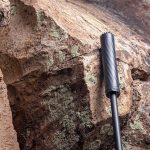The Adventure Travel Trade Association (ATTA) has released findings from its Second Adventure Business Impact Monitor Survey: COVID-19.
Fielded to adventure industry constituents from May 14-31, 2020 and answered by 274 organizations, the survey paints a picture of compounded losses and slow business resumption expectations for the adventure travel industry. But amid the turbulence, optimism is also slowly returning.
Compounding Losses
Between March and May, since ATTA first fielded the survey and then the second round, demand for bookings has continued to decline, trip cancellations have increased and revenue losses directly attributable to cancellations have grown. 178 organizations report collectively losing USD $936 million in revenue this year strictly due to cancellations, amounting to a loss of 47 percent of 2019-equivalent revenues on average per reporting organization.
Overall, businesses expect their revenues to decline by 68 percent this year compared to 2019.
“The travel industry has never seen a situation this intense. The speed and scale of this impact are humbling. As organizations rebuild, we ought to build resiliency in all aspects of organizational operations to better manage future crises,” said Heather Kelly, senior research manager, ATTA. “A silver lining in this dark time is that COVID-19 represents an opportunity for the tourism industry to take a deep breath and reemerge after a meaningful reset.”
Optimism Returns Slowly
Despite the grim forecast, businesses’ insolvency concerns show a sign of promise. More than half (53 percent) of respondents have a positive solvency outlook through 2020 and said they are ‘likely’ or ‘very likely’ to be able to pay their minimum debts and liabilities through the end of the year. A quarter (27 percent) of businesses are neutral on the question, and 1-in-5 reporting businesses (20 percent) have insolvency concerns. Organizations are also open to the idea of merging or selling to another operator with a quarter (28 percent) explicitly stating “yes” and 34 percent opting for “maybe/unsure.”
Businesses that have contracted in staff size (72 percent) expect to return to 80 percent of their 2019-equivalent staffing levels in 2021.
Slow Recovery Ahead
Three-fifths (59 percent) of respondents expect to resume normal operations by June 2021. The sentiment, compared to March 2020 data, has worsened. Back then, half of the reporting businesses were expecting to restart by the end of September 2020. A lengthy recovery now appears more plausible to reporting businesses.
Looking Forward
In the next 90 days, businesses are primarily concerned about cash flow (66 percent), travel restrictions (64 percent) and general economic uncertainty (46 percent).
Long-term, businesses are looking to tailor their product offerings (57 percent) and make health and safety changes (56 percent) to welcome back customers once the restrictions are loosened.
Support Requests
Companies are primarily seeking practical guidance on how to combat the impact of COVID-19: best practices, case studies and business approaches.
The educational topics businesses are in need of include: adventure travel in the time of COVID-19 (53 percent), resiliency and recovery (48 percent), digital marketing and storytelling (41 percent), new product development and innovation (31 percent), financial planning and business strategy (30 percent), and safety and risk management (29 percent).
Shannon Stowell, CEO of the Adventure Travel Trade Association, had this to say when asked what she’d like to share with industry members at this time: “We know this is a hard time for many, and we are committed to serving the industry constituents through this hurdle and the next. We urge you to stay connected and continuously share where you are and what you need so we can continue to tailor our work to meet your needs. We’ve all gotten off the marked trail this year due to an unexpected storm, but we’ll bushwack and find our way through this off-the-beaten-path.”
The Second Adventure Business Impact Monitor survey can be found here.















